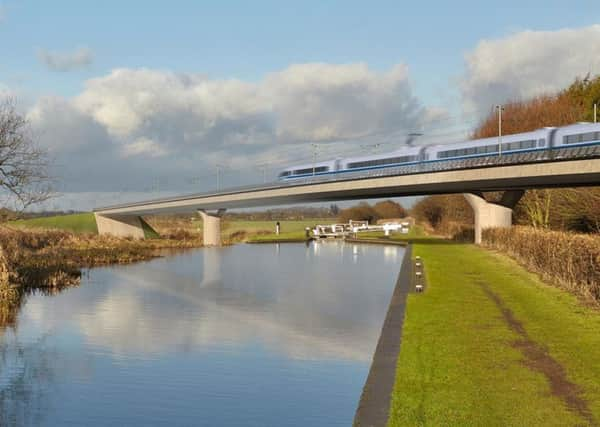Jan Zeber: Scrap HS2 to pay for new police '“ and reduce burden of tax


This is not unlike their pledges on NHS funding or reducing class sizes, on which nobody in the Labour Party is able to put a number, other than a generic soundbite about cracking down on tax avoidance.
But the Conservative Party’s response was disappointing too. Home Secretary Amber Rudd simply said that that ‘they’ve spent that money already’. There was no attempt to slam Labour over calling for tax rises, or to consider the benefits of lowering or simplifying CGT in and of itself, such as the positive impact on the level of savings and investment as well as reducing distortion in the capital markets created by the influence of tax advantages on asset prices.
Advertisement
Hide AdAdvertisement
Hide AdA similar story can be told on Labour’s proposed requirements for all private landlords to buy a licence from their local authority, and a fine of up to £100,000 if found in contravention of its terms.
Housing Minister Gavin Barwell is right to point out that this amounts to a ‘tenant tax’, since those increased costs will simply be passed on to the tenants in the form of higher rents. But this ire over the policy would have seemed a lot more genuine if the Conservatives had not introduced the stamp duty ‘additional homes surcharge’ – essentially a three per cent rise in stamp duty on residential properties which are not the owner’s main home.
It appears that the main difference between the major parties on taxation and public spending is that Conservatives have thought a bit more about where they’re going to raise the funds from.
We do not yet have sufficient detail from the Lib Dems, the Greens or Ukip to confidently comment on their stance on this issue, though if past performance is any indication, the notion that they will go in another direction is unlikely. It is disappointing that no side appears to have considered the benefits of leaving taxpayers to make their own decisions.
Advertisement
Hide AdAdvertisement
Hide AdTheresa May has pledged that there are “no plans to raise the level of tax”. But it is difficult to see how the PM can maintain her pledge without cutting taxes given the Office for Budget Responsibility (OBR) projections showing the overall burden is set to rise to the highest levels since 1986-87, even with the tax lock in place. Indeed, what seems to have happened is an exercise in political obfuscation.
The Government is able to claim that they have or are planning on cutting some taxes – the announced cut to corporation tax, the freeze in fuel duty and the raise in tax-free allowance for income and inheritance taxes are certainly to be welcomed. But reducing one tax whilst increasing another is a sleight of hand.
According to the OBR, the planned increases in insurance premium tax, dividend income, vehicle excise duty and restrictions on pension contributions for those in top incomes (and let’s remember she has not ruled out increases to income tax and National Insurance) more than offset the cuts. The result is an overall increase in the tax burden not seen since the 1980s.
A balanced budget, and accurately costed election pledges, are an important part of a strong economy because they minimise the need for Government borrowing. If unchecked, it can make a country vulnerable to economic shocks, changes to the international supply of credit, as well as make it more difficult to run a budget surplus as the costs associated with servicing debt increase.
Advertisement
Hide AdAdvertisement
Hide AdThis is precisely why it is worrying to see a general relaxation of attitudes towards spiralling public debt in the UK, Europe and the US, with the IMF going as far as proclaiming “the end of austerity”. It is not enough to simply match your election promises with corresponding tax increases, since this assumes we are starting with a clean balance sheet.
What we have heard so far suggests that it is going an election of poorly considered gifts, goodies and giveaways to the respective electorates, with varying levels of thought as to how they are going to be paid for, when it should about putting more money in taxpayers’ pockets by further cuts to tax and spending. How would we pay for it? By scrapping HS2, for a start. For those interested – it would pay the salaries of around 326,000 police officers. For five years.
Jan Zeber is a policy analyst at the TaxPayers’ Alliance.